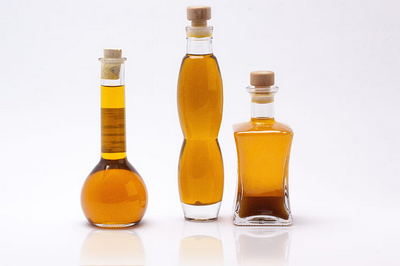The wood oils aren’t only preservatives and elements we use to preserve and protect our woodworking projects , but they give to wood many useful properties and features .
No matter what type of carpenter you are ( hobbyist or pro ) , you cannot avoid the use of the wood oils and you’ll find them in your path , in some stage of the woodworking activity .
Speaking personally , i lke very much the use of oils in their natural – pure form , or as ingredients in other wood materials – products , we use for wood .
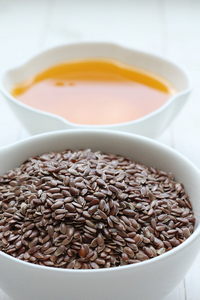
The wood oils we use in woodworking , are natural ( herbal – animal ) – chemical ( mineral ) or fully synthetic( silicone) fatty texture liquids( triglycerides ) in normal temperatures with several viscosities , we extract from natural seeds or create industrial from petroleum – mineral hydrocarbons and they contain several types of fatty acids and glycerol .
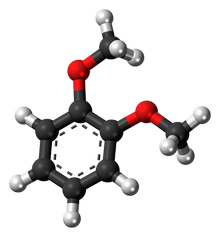
Serious Clarification for Natural oils – Mineral oils .
You may hear that for our kitchen’s equipment , cutting board , spoons , et.c , we use mineral oils that are harmless .
This is WRONG .
This is totally wrong and may confuse many and send them to wrong “paths” , damaging their health .
The exact definition of mineral is this :
” When we say mineral generally , we mean every chemical element or inorganic compound , of natural origin that exists in the earth’s soil – subsoil or inside water with the form of solution and as the earth’s rock ingredient .”
There are minerals , that are totally and only chemical materials . As the gold , the sulfur , et.c .
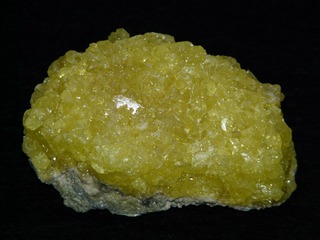
Scientists use these mineral stuff , to make tests for the age of Earth , of places , of rocks , et.c .
The totally natural oils are extracted only by plants , seeds , with natural extractions methods , using heat , water , pressure in professional oil presses , we extract olive oil , et.c .

Of course we have also natural oils coming from animals , from animal fat . These are totally natural too , but in wood protection we focus mostly to the seed – plants , natural oils .
We call them natural oils , not mineral oils .
Mineral oils , aren’t natural oils .
Mineral oils come from chemical – industrial procedures from , minerals .
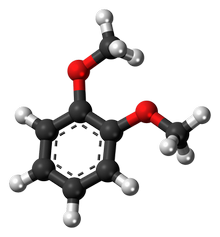
Minerals , like mineral hydrocarbons , et.c , from the rocks they exist in the soil and subsoil of Earth .
Period .
Mineral oils and totally natural oils , are dirrerent .
We cannot use these type of 100% chemical materials inside our oils , we’re going to use for cutting boards , et.c .
Yes , we have mineral oils . We have mineral oils made for cars and bikes and their engines .

Can you use them on our cutting boards and spoons , just because they been called ( wrong ) mineral oils ?
Of course not .
These mineral oils , have chemicals inside , are from mineral hydratecarbons mostly and for sure there aren’t natural oils .
So have in mind that we use only natural oils for our kitchen euipment and only the ones that are appropriate , suitable and have the appropriate licences .
Not in general mineral oils , that i hear in the so many youtube videos , from chefs , et.c .
This is wrong .
Where do we use the oils , in woodworking ?
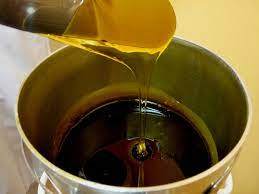
We use the several types of oils in woodworking , as preservatives , fillers , grain deep fillers , as sealers , as final coating( the final rifle coating is linseed oil ) , as hydration factors , as combination bases to other finishing elements , as thinners for other oil materials( paints , et.c ) and as antifungal and bugs factors , as the teak oil is .
What is an Example of an oil we use for wood ?
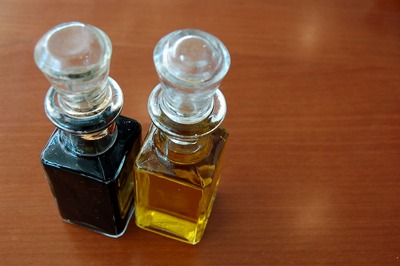
You can use all the variety of oils to your wood , according to what job you want it to do and some classical examples are the : linseed oil , teak , tung , danish , walnut , olive oil , and many more .
What oils are used , to Protect wood ?
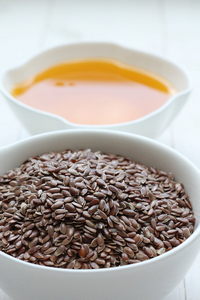
All the wood oils are offering a level of protection to the wood’s fibers and mass from the time they enter inside the wood’s mass and mixed – combined with its molecules .
They are taking their place inside , combined with the wood’s molecules , so nothing else as moisture , water , et.c , can “catch” their place to the wood’s fibers – molecules .
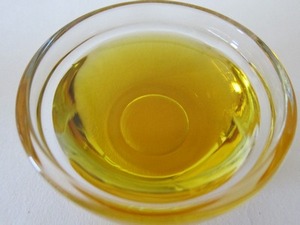
So in this way , they protect it from many external factors , as a shield and that’s why , the oils are great fillers , sealers of wood .
Of course you should be careful , what oil you use and in what wood . You cannot use mineral or other industrial oil with chemicals , into your kitchen’s equipment or your skin and general health .
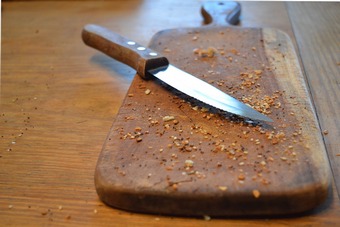
Oils with chemicals , solvents , etc , can harm your health .
As i clarified above , mineral oils aren’t natural oils and can damage your health , if you use them inappropriate .
Mineral oils , are totally different than the natural – pure oils with zero chems inside .
You use for yout kitchen’s equipment , only the approved totally natural oils , for this use . Not in general , minerals as you may hear .

There are mineral oils , that are only chemical materials and of course extremely dangerous , for your health – your cutting boards , et.c .
Is Linseed oil , good for wood ?
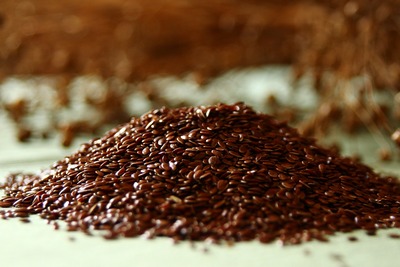
The linseed oil , is one of the most important and best oils for the wood protection and its uses and combinations are “endless” , providing excellent , protection and beautiness to wood .
Be aware that all the elite gun – rifle manufacturers are finishing their expensive rifle handles , with linseed oil and nothing more .

If you want to purchase some of the most classical linseed oil products , go HERE .
Can i oil , Any wood ?
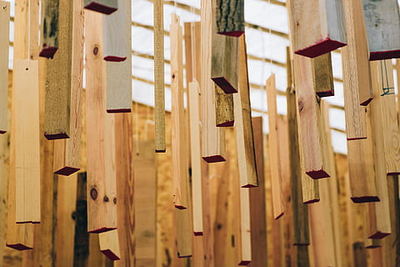
Yes , you can oil any wood and the more open pores it has , the better protecting – filling – sealing , results you’ll have , along with bigger grain beautifulness .
Of course the bamboo wood isn’t maybe a wood type that you should be so careful to oil it , protect it , et.c .

The bamboo is a special type of wood , it has almost zero pores and the materials you should choose to paint it , et.c , are kind of a difficult puzzle .
How many times should i oil wood ?
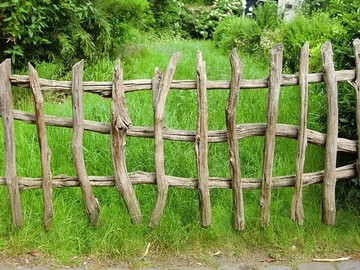
There is no specific number in here and it depends from the type of wood you have( open pores or not ) , the type of oil you have and how capable is to penetrate wood and what results you want to have from your oiling .
I oil wood , till it takes no more and i’m certain that it went as deeper as it could and that’s why , i warm my oil a little , in order to become thinner more flexible and go very deep .

The beekeepers , boil their light sanded open pore hives into linseed oil , so that the oil goes the deepest possible as i’ve told you so many times in this series of articles .
Can you apply Too much oil to wood ?
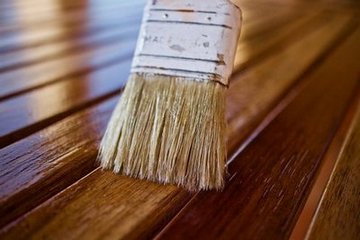
Yes , you can apply and “drown” your wood in oil , but you should be aware that your drying times will be very long and if your oil is pure linseed oil , you’ll may need many months for complete drying .
Do i need to Sand wood Before oiling ?
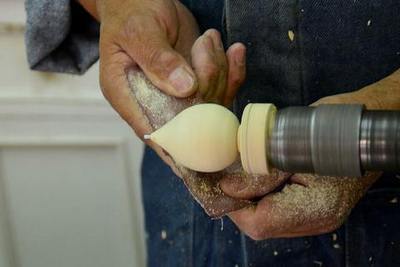
If you don’t like it , you may not , but if you want to open the wood’s pores , so the oil can penetrate very deep , you should sand your wood piece , light or aggresive , depending your needs .
I sand with aggressive sandpapers , to wide open the pores .
Should i sand , After oiling ?
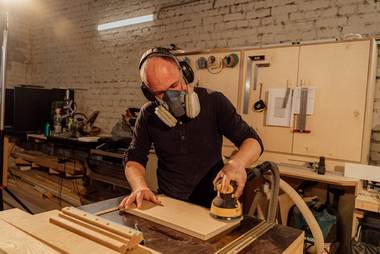
Yes , if you’ve sanded before the oiling , your surface is rough and now , after the complete drying , you want to make it smoother or totally smooth .
HERE , are some very classical sandpapers and equipment to buy and use .
Can you oil , over Varnished wood ?

No , it’s not a good idea , because the layer – coating from the varnish , won’t let the oil to penetrate inside the wood’s pores and do its job .
If you use a natural varnish as the double boiled linseed oil ( heat make linseed oil a top natural varnish ) , yes , you can use an oil your surface and refresh this natural varnish .
Can i use Olive oil on wood ?
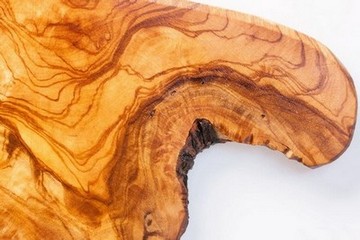
Yes , you can and the olive oil is a very nice oil for your kitchen equipments and boards . It’s an eatable oil and totally harmless to your health .
The 100% pure olive oil is a first class oil , totally harmless to your health and an excellent choice for your kitchen equipment , even if the natural fatty acids it contains are rising during time , as the oil becomes older .
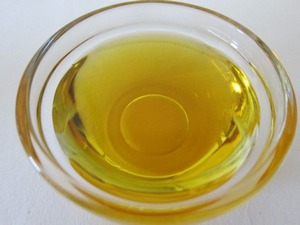
We still eat it . The fatty acids it contains , are totally harmless , are totally natural and pure , with zero chemicals inside them .
We still eat old olive oil , of 2 – 3 – 4 years old , even if it has bigger acid numbers . These are nature’s acids , totally harmless for your health .
I wanted to clarify this , once and for all . The olive oil comes from the olive oil tree with mechanical processes , the use of warm water to seperate the water from the oil and it’s totally harmless .

Remember that many pet doctors give and suggest to the pet owners to give to their dogs , pieces of oil wood impregnated with pure olive oil to chew for their teeth .
So , erase rumors maybe and use 100% pure olive oil to your kitchen stuff and wherever you like .
What does Olive oil , do to wood ?

The olive oil fills the pores of wood , making it stronger and more solid , but flexible at the same time and emphasizing its grain , making it a little darker with golden shades , which is very beautiful .
Can i use Olive oil instead of Mineral oil on wood ?
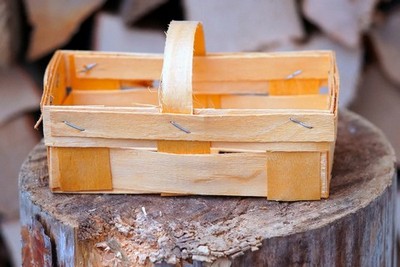
Yes , certainly you can and of course you should be aware that these two oils , are totally different .
Mineral oils have chemicals inside them or can be 100% chemical elements .
Of course , they haven’t the purity of the 100% pure olive oil and the other natural oils and they should never be used on kitchen equipment and stuff like that .
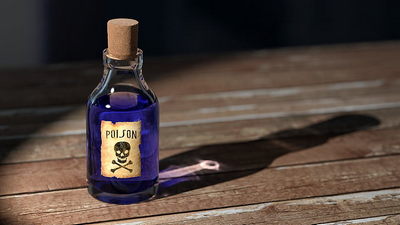
Some mineral oils , come from petroleum or can be 100% chemical based and of course are dangerous for your health .
There are bikes – cars oils , that are called mineral oils . Do we use them to our cutting boards ?
Of course not .

Not all oils in general , are suitable and harmless .
When we say mineral we mean every chemical element or inorganic compound , of natural origin that exists in the Earth’s soil – subsoil or inside water with the form of solution , as the Earth’s rocks ingredient .
There are mineral that are totally chemical materials , as the gold , the sulfur , et.c .

These minerals , aren’t suitable for your cutting boards , kitchen equipment , et.c , just because we call them( wrong ) minerals .
We use only suitable and licence approved totally natural oils , for our kitchen’s equipment .
You hear many times , many chefs , et.c , that you should use mineral oils , for your kitchen’s cutting boards , spoons , et.c .
This is wrong . !!!!!!
They should say , you should use only totally natural and 100% approved oils , with the appropriate licences .
Period .
Sorry that i’m so strict in here , but i want to clarify this , once and for all and i don’t like to see , not 100% precise answers – propositions , for health issues .
Every product – oil element outhere , has its own “mission” and properties .
Can i use olive oil for Outdoor wood furniture ?
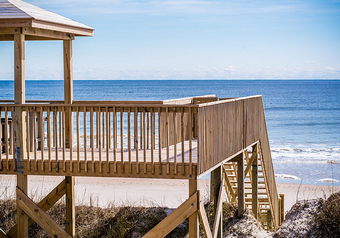
If you like it , yes you can , but i don’t suggest you to do so , because the outdoor conditions are very tough ( UV’s , moisture , toxicity , et.c ) and the olive oil , doesn’t have the abilities to protect your wood affectively .
What oil is best for wood Cutting boards ?
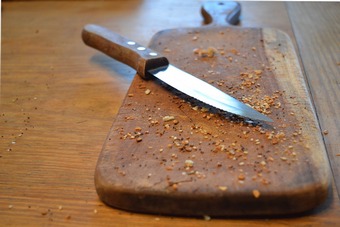
You should always use only the appropriate totally natural oil for your kitchen equipment as cutting board , spoons , et.c , nothing else and a great oil is the olive oil .
Remember that some of the best kitchen’s cutting boards are made from olive oil trees , impreganted with 100% pure olive oil .
The pet doctors suggest for dogs to chew wooden sticks for their teeth , made from olive oil , impregnated with pure olive oil .
The olive oil and only the appropriate pure – natural oils for the kitchen equipment , are the only ones you should use and trust .
Check the brand’s tag of the oil product , what it says , ask questions to the salesman and the proceed to your buying .
As i wrote above , we use oils for our cutting boards , but only 100% natural oils that are suitable fof this use and not minerals in general , as we hear all the time .
This is wrong .
Not all oils are suitable and harmless for your health , just because many call them( wrong ) mineral oils .
Mineral oils and natural oils are totally diffrent oils .
Mineral oils are coming from the Earth’s mineral elements , several rocks , mineral hydratecarbons , which is the petroleum , et.c .
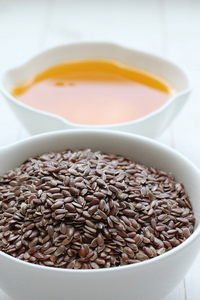
Natural oils are coming from seed – plant extraction in oil presses and of course we have also animal oils , in the natural area .
We have also natural oils coming from animals , but in woodworking we focus on seed – plant oils , mostly .
There is no natural oil , coming from mineral elements , rocks , et.c .
We create mineral oils , for bike and cars use . We don’t use them on our cutting boarrds , just because we think that mineral is the same with natural .
It’s not .
Can i use Sunflower oil on wood ?

Yes , certainly you can and the sunflower oil has lower viscosity ( it’s thin oil ) , so it can penetrate deep inside wood , especially if you warm it a little .
Can i Use Baby – oil on wood ?
Yes , you can but not for your kitchen’s equipment and stuff like that . The oils we create in labs for our several purposes with complex chemical methods , aren’t suitable for all uses .
The kitchen equipment ( boards ,et.c ) requires only totally pure oils and the appropriate ones for the job .
Can i use Vegetable oil on wood ?
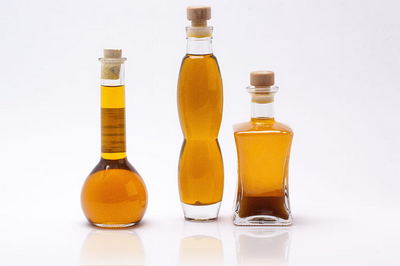
Yes , you can use but have in your mind that every oil which isn’t drying very fast it “magnetize” dirt and stuff like that and it needs more attention , more wipping – cleaning from you .
Can i use Almond oil on wood ?
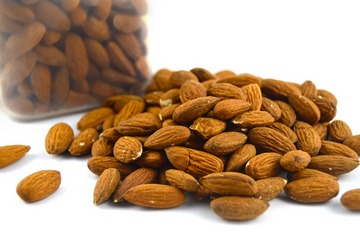
Yes , certainly you can and be aware that the sweet almond oil is an eatable oil , used for many cosmetics uses and it’s totally harmless to your health , skin , eyes , et.c .
At the other side the bitter almond oil can be toxic and i don’t recommend you to use on your wood , especially if your continuous touch , indoors wood .
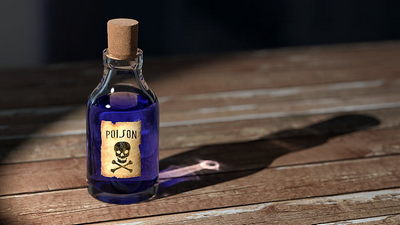
For an outside use it’s ok maybe if you don’t have anything else , but i highly suggest you to avoid it .
Does almond oil , Darken wood ?
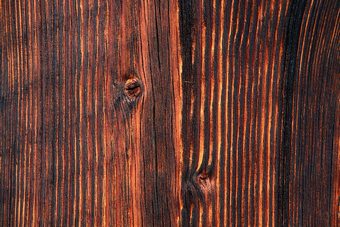
Yes , it does and you should be aware that all the oils we use for our wood , are affecting in the wood color and grain in some kind of a level .
Does Engine oil , treat wood ?
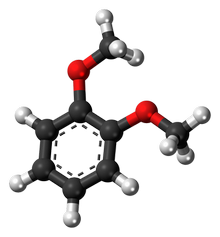
According to a latest research( see more in here : www.MDpi.com ) , yes the engine oil treats wood , as all oils i suppose in a grade , but remember that engine oils have several chemicals inside them .
For sure you should not use engine oil for your indoors and the wood stuff you touch – smell – react daily and i think that using an engine oil for your wood , is maybe a last ( and desperate maybe ) solution .
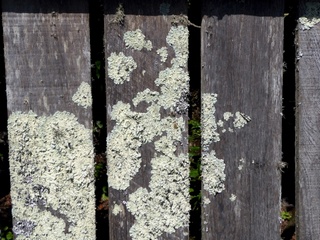
What oil keep wood from Rotting ?
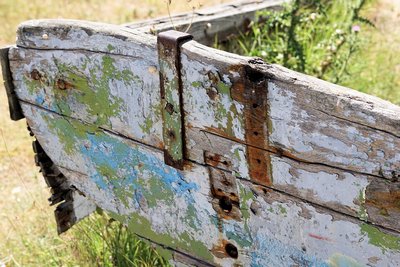
From the moment the fatty oil molecules penetrate wood and mix – “hug” its molecules , they protect wood from many factors and from rotting also , because they “catch” the places of any other element which will attempt to penetrate wood .
All oils can prevent the wood from rotting with the Tung oil has better results a little more .
See the best tung oil products from the markets , in HERE .
The pure linseed oil , makes the rotting way more difficult for the wood .
What oil makes wood , Waterproof ?
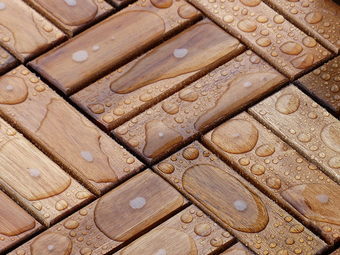
From the moment the oil molecule , penetrates inside the wood’s mass and “hugs” its molecules mixed with them with strong bonds , nothing else can enter inside , because there is no free space for it .
So all the oils we use to our wood are making the wood waterproof in a significant level and as thinner and capable is the oil , the more it seals – fills the wood’s pores , making it waterproof in a high grade .
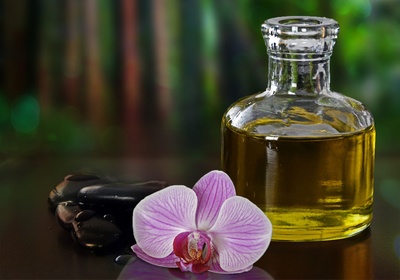
The linseed oil , the tung oil and the danish are very good oils for the job .
The danish oil in many versions to purchase , in HERE .
What is the best oil for Interior timber ?

I highly suggest you to use only pure elements – oils for your interior wood , because it’s way better for your health , your skin , your general health and it has the natural harmless smell , all the pure nature’s oils , have .
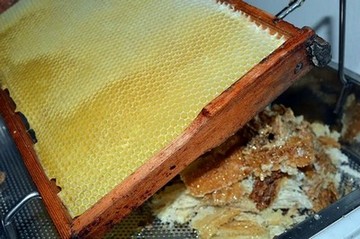
For your interior the pure linseed oil is a great solution , as of course all the 100% pure oils and pure waxes that are suitable for wood . You can make many natural oils , waxes , shellac , pumice dust combinations , to use fearless for your indoor wood .
I’ve written a post for these many natural combinations , see it HERE .
How many coats of oil for your outdoor furniture ?
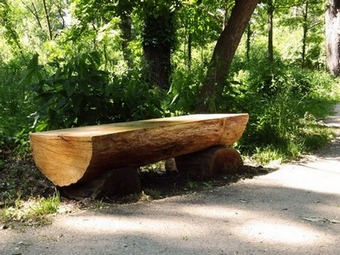
Apply as many coat layers you want and satisfy your specific needs you have for the specific wood furniture and wood , you want to protect and finish with oils .
There is no unbroken law in here . I personally “drown” my wood to oil , knowing that i’ll need way more drying time , but i don’t care . I want the deepest penetration and the best possible protection .
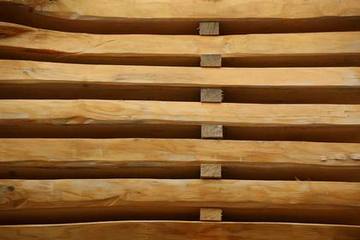
Always be aware of your weather conditions and adapt accordingly .
How Often , should you oil Outdoor wood furniture ?
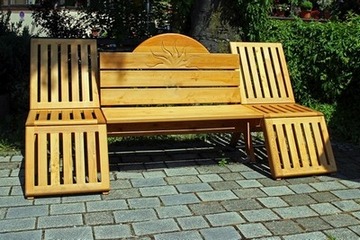
As often your wood furniture it needs and you identify that it needs from your continuous inspections of its general condition .
If you live near the sea , you’ll need way more often oiling . If the sun’s UVs are “torturing” your wood 14 hours a day , you’ll need the oiling protection way sooner comparing to another more mild place .

How do you Moisturize outdoor wood furniture ?

The oils we use for wood , are first class moisturize factors for any kind of wood and of course are very good for your outdoor wood furniture , especially the teak oil which is a great oil .
See my top teak oil suggestions from the stores to buy , in HERE .
You can use linseed oil , but a nice teak oil combined with some UV’s protection factors and other ingredients suitable and outdoor targeted , is a great solution .

You combine the antifungal protection of the teak oil , with the UV protection , et.c .
Of course not only the pure natural oils can moisturize wood , but all the oil variety combinations , natural or natural enriched with chemical factors .
What oil is good for Moisturizing wood , generally ?
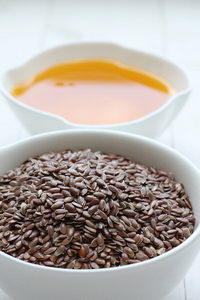
The best oil for wood’s mosturizing is the pure linseed oil , then the boiled one which contains some extra filters and solvents and then the teak oil which is great for the outdoor wood mostly .
How do you Restore Dry outdoor wood furniture ?
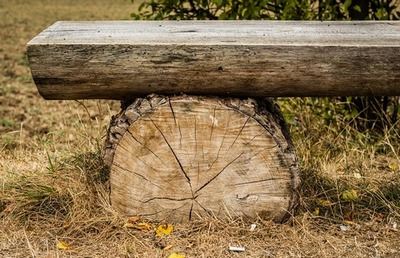
If your problem is only the drying , a nice oil for wood as the teak oil is a fine solution for restoration and if your wood has serious issues , combine linseed oil with teak oil and you’ll be just fine .
The warm linseed oil will go deep to moisturize the wood’s fibers and the teak oil mixture with UVs and other filters will moisturize and protect , the same time .
I’ve written a post with many natural & chemical combinations for your wood protection , in HERE .
What happens if you don’t oil wood ?
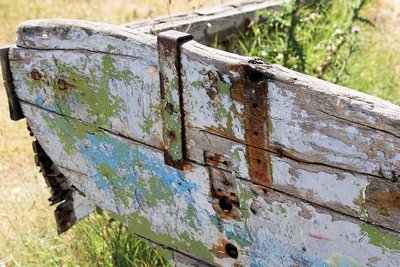
During time and the general circumstances ( weather , et.c ) , the wood loses its natural inside oils and becomes dry more and more , till it’s total destruction , if you leave it unprotected for ever .
The grey color you see in the street seats , et.c and the outdoor unprotected wood , comes from this situation and it’s a “deadly” serious sign that you wood is dry .
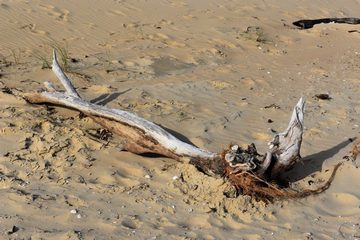
What is the longest lasting , wood oil ?
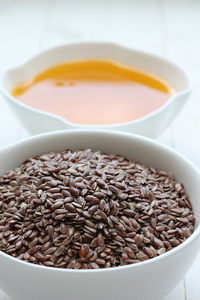
The pure linseed oil needs the most time to completely dry and many say that the linseed oil , never totally dries 100% and its drying process , last many and many years making wood more solid and more solid and stable .
That’s why many prefer to use the boiled linseed oil , which contains solvents and other drying factors , that help the fast drying and making things easier .
Have in mind that the pure linseed oil may need from a month , to six or more months(!!) , to completely dry and be ready for use .
Is it better to oil or Varnish oak ?
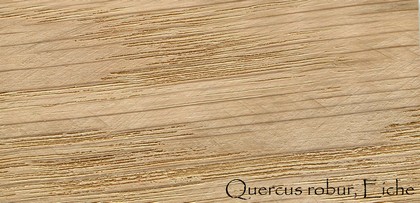
You can oil or varnish and oak piece , individualy having very good results , but why not to combine them and have excellent results , that will last way longer ?
You can use the deep penetration and protection ability of a good oil and then after the drying , you can varnish your wooden plan , sealing it and make it “bulletproof” to time and wear .

What are the disadvantages of the wood oils ?

1) There aren’ t cheap and many times are more expensive than other elements .
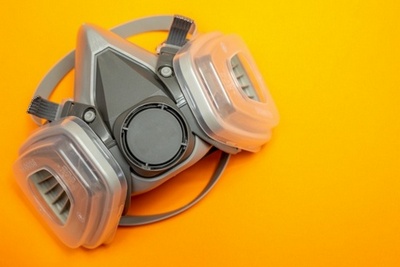
2) They have a strong smell , even if in the cases of the pure oils , this smell doesn’t cause any problems .
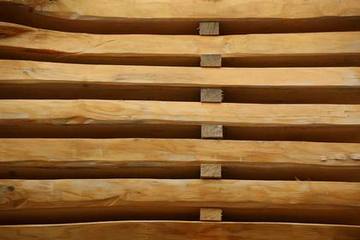
3) They need longer periods of time for drying , especially the 100% pure as the linseed oil , et.c .

4) In many weather cases , they need more often extra coating layers and inspections .
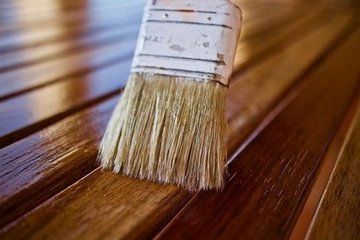
5) Many times they need more time and mind preoccupation , than a : “open the can – apply and you’re done” , fast procedure .
The oils and the “millions” of uses and combinations we use in woodworking is a super column process and there are a very helpful “chapter” for any carpenter .
There are traditional solutions and if you make combos with the modern era’s stuff , you can do magic to your wood .
Keep woodworking and “oil yourself” with endless happiness .
